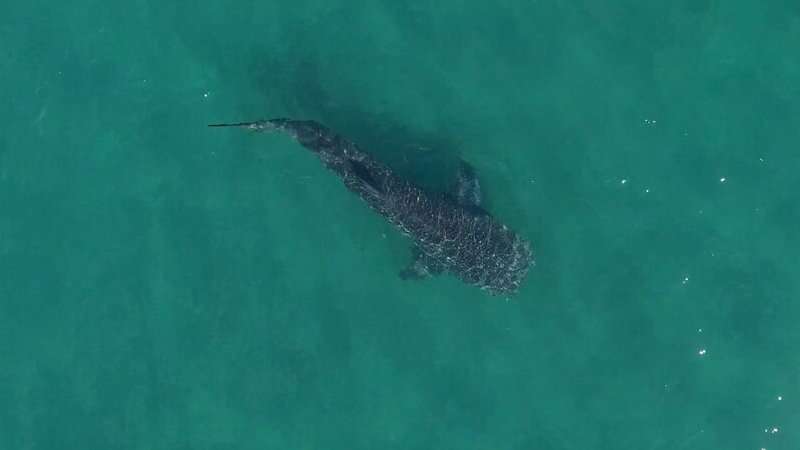This article has been reviewed according to Science X's editorial process and policies. Editors have highlighted the following attributes while ensuring the content's credibility:
fact-checked
peer-reviewed publication
trusted source
proofread
Shark ecotourists may have a negative effect on shark behavior

Shark ecotourism—where individuals pay to swim with wild sharks—may increase the likelihood of whale sharks (Rhincodon typus) exhibiting disturbed behavior patterns resembling the fast, zigzag movements associated with fleeing predators, suggests a paper published in Scientific Reports. The findings suggest that ecotourism may have a significant effect on the foraging and potentially reproductive behavior of whale sharks.
Shark ecotourism is a multi-million US dollar industry, but the potential ecological impacts are still poorly understood. Previous studies have demonstrated potential links between shark ecotourism and decreases in the number of shark species encountered at some ecotourism sites, but studies on the effects of ecotourism on shark behavior have so far been unclear.
Joel Gayford and colleagues analyzed 39 overhead videos of whale sharks in the Bay of La Paz, Mexico, to assess whether shark behavior changed in the presence of a swimmer mimicking ecotourist behavior (20 videos) compared to the sharks swimming in isolation (19 videos).
The authors observed an increase in disturbed behavior patterns when the swimmer was present, which would result in the sharks expending more energy than when swimming in isolation. This change in behavior could potentially make it harder for the whale sharks to forage for food, and may even possibly affect reproductive success.
These findings suggest that shark ecotourism operators should be encouraged to assess the behavioral state of individual sharks before allowing swimmers into the water, and that the minimum regulated distance between sharks and tourists should be reviewed.
The authors also suggest that further studies on the ecological impact of shark ecotourism should be conducted to properly assess the consequences of the industry on different species.
More information: Joel H. Gayford, Quantifying the behavioural consequences of shark ecotourism, Scientific Reports (2023). DOI: 10.1038/s41598-023-39560-1. www.nature.com/articles/s41598-023-39560-1
Journal information: Scientific Reports
Provided by Nature Publishing Group




















